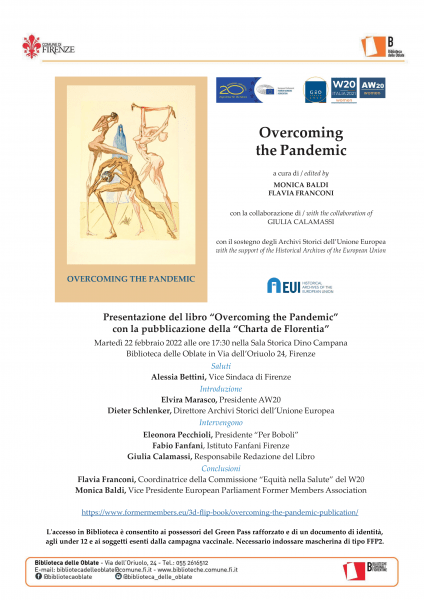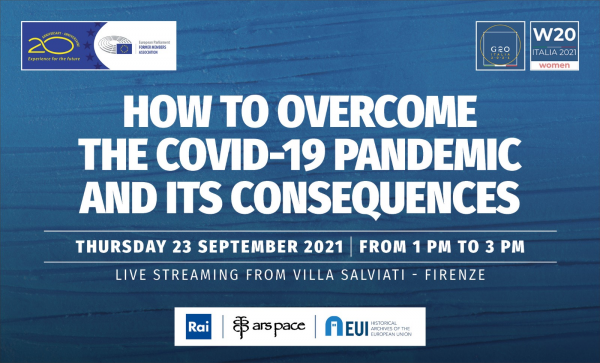
- This event has passed.
Conference: How to overcome COVID-19 pandemic and its consequences
On 23 September 2021 from 13.00 to 15.00, an online conference on “How to overcome COVID-19 pandemic and its consequences” took place.
This hybrid live streaming event organized by the W20 International Equity in Health Commission and the Association of Former Members of the European Parliament together with the EU Historical Archives brought together political and academic figures to discuss current gender inequalities in health systems.
FMA Vice President Monica Baldi will present the FMA book “Overcoming the pandemic” with the publication of the “Charta de Florentia” next 22 February 2022 at 17.30 (CET), taking place at Sala Storica Dino Campana Oblate Library (Biblioteca delle Oblate) in Via dell’Oriuolo 24, Florence.

Video of W20 Italia on the News
Watch the Conference
The event opened with Ludwig Van Beethoven’s “Hymn to Joy”, performed by the Ars Pace flute master Andrea Ceccomori. The participants were welcomed by the Secretary General of the EUI Marco Del Panta, the Deputy Mayor of Florence Alessia Bettini and the Director of the EU Historical Archive (IUE) Dieter Schlenker. The opening of the event was entrusted to the Minister of Equal Opportunities Elena Bonetti, the FMA President Hans-Gert Poettering and the W20 President Elvira Marasco. The debate was animated by the representatives of the International Institutions of the W20 Group and including the Commission and the European Parliament. The event ended with the presentation by the coordinator of the W20 Equity in Health Commission Flavia Franconi and by the FMA Vice President Monica Baldi of the “Charta de Florentia”.
The W20, made up of more than 90 delegates from 20 counties, is the G20 engagement group focused on gender equality and aimed at developing policy proposals and recommendations directed to the leaders of the G20 member countries. The W20 Equity in Health Commission aims to specifically address gender inequalities in health systems. Its establishment stems from the idea that gender differences affect health status and the need to therefore develop a gender approach to clinical practice.

